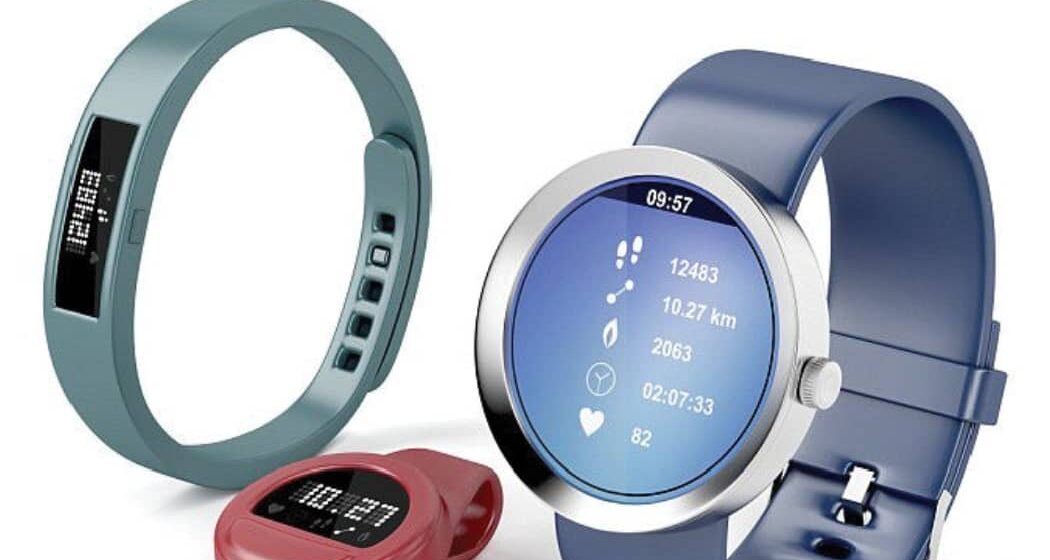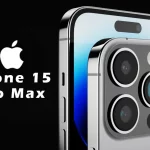By Pharm. Onyeka Onwughai
From time immemorial, there has always been efforts to make healthcare easier and more efficient through the use of technology that has revolutionise the monitoring of patients’ health, especially those in critical and chronic conditions.
In the 20th Century, we witnessed an explosion in the use of technology in the medical field and mass industrialization in the areas of medical equipment and machines used in healthcare, which has gone Evangelical.
Fast forward to the 21st Century, we now thousands of amazing technologies with mind-blowing capabilities that we never thought possible some decades ago.
There has been a rise of some type of “portable” accessories called “medical wearables”, which have thousands of features and can literally perform the functions that a full warehouse of medical equipment couldn’t perform 50 years ago.
From “Fitbit” wristwatches strapped to the wrists to glasses or AI powered smart contact lenses placed directly on the eyes, these small devices could be hand-held, strapped to the body or could be just a small ring on the finger, clothes with thousands of sensors monitoring different physiological parameters, an arm-band, headset, belts, strips, shoes or better still a small micro-sensor the size of pin placed on the body.
These could perform a whole range of features like monitoring the vital signs (heart rate, blood pressure, oxygen levels, acidity or alkalinity of an individual’s blood or body fluids, sleep activities etc) of an individual and some have more advanced features like detecting when a person falls, or the person’s gait while walking.
In addition, such devices help to monitor the physiological state of an individual, parameters like blood sugar levels, the heart’s electrical activity (Electrocardiogram) and alert a caregiver in the event of an impending danger, even up to predicting whether a person will have an heart attack (myocardial infarction) one hour before it happens.
It also makes conscious efforts to inform your Healthcare provider when it senses your health could be in jeopardy in the near future (like an hour time). These devices act more like a “Big Brother”, watching over you to make sure your health is never in danger…
At the Consumer Electronic Show, CES 2024, which is an annual event that serves as a global stage for innovation and breakthrough technologies in the consumer electronic industry). Several innovative products were awarded. There are some that really stood out in the medical wearables category. They are:
*Withings BeamO
Based on information from the Withings official website, Withings BeamO is a four-in-one device that is used for health checkups. It has an in-built a Digital Stethoscope that listens and gives you information about your heart and lungs sounds, a Medical-Grade 1- Lead Electrocardiogram (ECG) that monitors your heart rhythm and detects AFib (Atrial fibrillation), a Blood Oxygen Oximeter to measure your blood oxygen level, and a Contactless Thermometer to measure your body temperature.
The thermometer is placed on the forehead and then flipped. The stethoscope is placed against the chest and it has electrodes that take heart rate and Blood oxygenation readings.
Audio streaming helps ensure that the device is correctly positioned, the audio files are recorded on the device, the BeamO has a USB-C adapter that allows you to listen to results through headphones,
The data is transferred and stored in the app and you can easily share all of this data with your doctor. The Withings Beamo will be available by June 2024.
*Baracoda Bmind
Mirror, mirror on the wall, who’s the healthiest of them all?
Baracoda is introducing the world’s first smart mirror that can detect your mood and help manage stress. When you look into the mirror, it will show you a reflection of your current state of mind.
It also provides you with advice on how to manage stress, calm anxiety, and reduce insomnia.
The BMind is built on the latest CareOS platform and is powered by generative AI, natural language processing, and gesture recognition. According to Baracoda, this innovation is a touchless experience that allows you to browse the CareOS interface, start light therapy sessions, or do mindfulness exercises.
Besides, it provides personalized recommendations based on your mental state. The BMind offers personalized suggestions and experiences tailored to your mood based on your mental state as part of an intuitive, gesture-based, voice-based, intent-based experience.
It helps the user manage stress, reduce anxiety, and reduce insomnia by helping you maintain a positive attitude and promote a proactive wellness approach.
BMind integrates seamlessly into everyone’s bathroom, allowing you to assess your mental state and select recommended activities and exercises to improve your mood. BMind collects information without any intrusive technology and helps you integrate mindfulness practices into your daily routine or even reduce feelings of loneliness with an immersive experience that uses light, sound and visuals.
BMind also uses Generative Artificial intelligence (AI) to create conversation with you (like a person inside the mirror is actually having a conversation with you about your mental health and how to improve it) and coaching sessions as well as NLP to analyze your sentiment.
BMind responds to different sentiments and adjusts to your mood with light therapy sessions as well as auto-generated, personalized mindfulness exercises like guided meditation and Self-Affirmations.
There is no pricing or release date yet, but Baracoda plans to launch the BMind in the near future.
*The Garmin Lily 2
The Garmin Lily 2 is a major improvement over the original Garmin Lily 1. It has the same basic features as other fitness trackers, such as 24/7 monitoring of heart rate, step count and calorie burn. Others are respiration, pulse oximetry, stress levels, sleep tracking, and more.
The Lily 2 looks pretty much the same as its predecessor, but it’s got some plastic replaced with metal, a few new colors, and a longer battery life.
When you wake up in the morning, the Garmin Lily 2 app will give you an overview of your sleep, your daily calendar, the weather, and more to help you get ready for your day.
If you have high stress levels, the Lily 2 allows you to see your energy level throughout the day. This way, you can tell when your body is ready for activity or when you need to recharge with a restful night’s sleep.
The Garmin Lily 2 also offers meditation practices and other breathing techniques to help reduce stress.
Furthermore, Lily 2 is specifically designed for women, so you can track menstrual cycles, pregnancy, exercise, and nutrition education. This feature is most important for very sexually active women, imagine indulging in unprotected coitus during ovulation without having an idea that you’re in your most fertile period… You’d risk having unwanted babies.
It also encourages users to move after sitting for an extended period of time (because physical inactivity is bad for your health). However, this is not a static reminder like on an Apple Watch.
The Lily 2 will recommend a range of movements to try, including neck rolls, side bends, squats, and other seated movements.
Additionally, Lily 2 provides a score for you to assess the quality of your sleep and also provides insights on how to improve it. You can also track the different sleep stages, as well as your stress level, Pulse Ox2, heart rate and respiration.
When you’re out of the house and going about your daily activities, the Lily 2 tracks your steps, how many calories you’ve burnt, intensity minutes, and more. You can also switch up your workout by using the built-in sports app on your favorite Android or iPhone when paired with the Garmin Lily 2.
In case there is an emergency, a message with your name and location will be sent to pre-selected emergency contacts if an incident is detected. Now that’s one hell of a watch…
Source: GARMIN®️
*NuraLogix MagicMirror
NuraLogix, the world’s leader in Affective AI™️, is proud to announce its first-ever tabletop smart mirror that uses facial blood flow data to calculate a wide range of vital signs and assessment of disease risk.
According to News provided by NuraLogix through PRNewswire, When you sit in front of the mirror, the device detects your body movement and begins to scan your face for 30 seconds. This method of gathering health data without multiple manual inputs makes it easy to use, especially for people with mobility issues, the elderly, and more.
The MagicMirror™️ uses NuroLogix’s patented TOI™️ technology, a new form of Remote Physiological Image (rPPG), to automatically scan a person’s face, identify key areas of interest, extract blood flow information, and send the data to a cloud-based platform, DeepAffex™️.
DeepAffex™️ uses advanced signal processing, machine learning AI algorithms, and over 100 health parameters to calculate your health data and sends back a result.
Imagine a mirror that can give you insight into your health just by looking at your face!, that’s indeed a Magic Mirror…..
NuroLogix has not announced a specific number or release date.
*ANSSIL i4 Smart mattress
At CES, Anssil, a start-up start-up originating from Korea, unveiled its new customizable mattress, the ANSSIL Smart String i 4 Smart Mattress.
Unlike traditional mattresses, Anssil’s new mattress isn’t made of air, foam or springs. Instead, it’s made of a 14-million-thread string material, which Anssil claims allows it to retain its shape for more time than traditional mattresses.
According to ANSILL, The mattress’s adjustable cushion levels come in 10 different levels, and users can choose from a companion app to view data collected by an embedded pressure sensor and a built-in scale.
The app will display sleep and health data, and it can sync with a smart scale or a wearable device.
Anssil has not yet announced pricing or release date for its new mattress.
*Zoe Care’s Zoe Fall
Zoe Care’s Zoe Fall is a smart, safety-focused device that monitors your wellbeing from the comfort of your own home.
Simply plug it into your standard wall outlet, and your Zoe Care app connects to it. The device uses deep learning algorithms to detect nearby falls based on the disruptions in Wi-Fi signals. If you fall, the Zoe Fall sends an alert to your caregiver via the app. ‘One Zoe Fall plug: is said to be able to monitor 800 square feet of space.
The Zoe Fall is designed to help senior citizens live independently without the need for cameras or wearable devices that might invade their privacy or personal style.
Unlike other solutions that rely on high-end computing and cloud processing for their algorithms, Zoe Fall’s algorithm is built directly into the wireless receiver for complete privacy.
According to the company, its technology outperforms competitors in terms of efficiency and privacy, making it the perfect choice for caregivers who value both.
The Zoe Fall plug works by capturing Wi-Fi signals emitted by an internet box or router. The artificial intelligence inside the sensor then detects wave variations to identify movement and detect falls.
If a fall is found, an alert is sent immediately to the caregiver or relative’s smartphone. Now these elderly people can bid farewell to the popular BOB song “Don’t let me fall”, because even if you fall, swift help is on the way.
The price and availability of the Zoe Fall have not yet been announced by Zoe Care.
*Elo Smart Gummies
The Elo Smart Gummies are designed specifically for those individuals having problems with their nutrition. According to the Elo.health website, these 3D printed gummies promise to provide you with the nutrition of seven regular health pills in one delicious gummy!. Elo’s Smart Gummies come in eight different flavors and have 389 million different combinations of nutrients to choose from.
The company is Led by rock climbing legend, Tommy Caldwell
Elo’s Smart Gummies are available now on Elo’s website. To choose your layer and find out the price, you must complete an online assessment..
Now you can “chew your way to good health”, what an invention?!.
*Ultrahuman Home
The Ultrahuman Home is a home health monitor that looks like a modem. But it’s actually a health-monitoring device for your home. It has built-in sensors that measure ambient air quality, humidity levels, light intensity, and noise.
According to Natasha Lomas (Tech crunch) The Ultrahuman Home’s software processes the sensor data locally and records it over time. The companion app will alert you to any red flags or environmental changes that could lead to different health issues, such as elevated stress levels or reduced sleep.
The ultra-human home is set to go on sale on Kickstarter this month for $349.








Leave a Reply